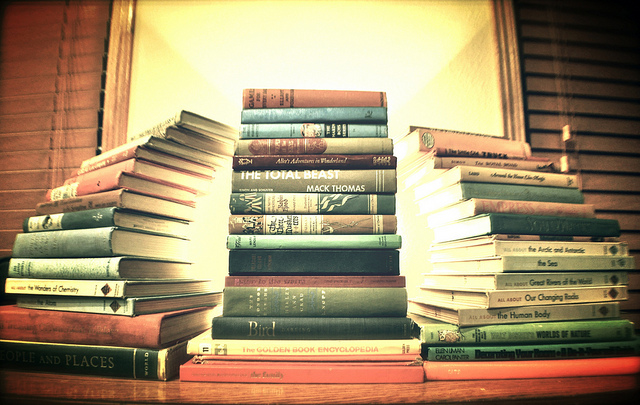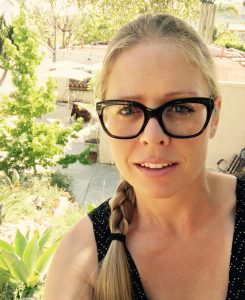I was slightly embarrassed when I read Professor Stephens’ article “Stuck in the Past,” and his students’ responses when asked why they wanted to be librarians. When I decided to go to library school, it seemed like a logical choice, because (like those students) “I like books.” This is actually a bit of an understatement for me. I’ve always thought of myself as a book nerd and considered this a vital part of my identity. It is why I “followed my passion” and majored in English as an undergraduate. I got to read lots and lots of books, then write about those books, have discussions about them, ask questions about them, discuss and write some more, followed by lots and lots more reading of books.
Cue the angelic hymn:

I have to say that my perception of libraries since I began my MLIS program, however, has been rocked to the core, and although I may still take comfort in being around those antiquated vessels of paper and ink, I marvel at the new vision of libraries as participatory centers in their communities.
I suppose I was forgetting a crucial component of libraries when I had visions of myself working in one, surrounded by rows and rows of lovely books. What I was forgetting was the reason libraries exist at all: people. Not that I don’t like people; I love helping people. It is a big part of what I do in my current job as a pharmacy tech. I suppose my perceptions of librarians involved more of that passivity that Aaron Schmidt writes about in his blog post “Services Before Content.” He urges libraries to reject passivity by exploring different and unique ways to better serve their communities. There is no one-size-fits-all approach, and he notes that libraries should devote time to “observing the core needs of our communities and thinking of exciting ways to meet them.” I had never considered the way that each community is unique unto itself, with its own mix of priorities, cultures, age groups, and service needs. It has become abundantly clear that libraries must move beyond the role of providers of free content, and instead embrace the possibility that they can be open and versatile spaces where people in the community can meet, interact, create, discover, and learn. And all these things have to do with so much more than just books (duh!)
I enjoyed reading David Loertscher’s article, “Flip This Library: School Libraries Needs a Revolution.” The idea of the “learning commons” was especially exciting to contemplate. This kind of environment was paralleled in Professor Stephens lecture: flexible library spaces that serve multiple purposes and are ideal for community involvement. Loertscher also echoed themes in this class when he noted “in the virtual world, the learning commons is both a giant ongoing conversation and a warehouse of digital materials.” This notion of an ongoing conversation tied in nicely with Professor Stephens’ earlier thoughts about the nature of communities and the importance of an ongoing conversation within. The article mentions the change in the information flow when a school library embraces the learning commons. In this environment, with the aid of dynamic teachers, librarians, and technology, information is not simply passed directly down from teacher to student, but instead flows organically in all directions. This sounds like true learning and discovery, and a hallmark of participatory culture.
————————————————————————————-
 Anna-Carin U’Ren is a student in her second year of the MLIS program at San José State University. She earned her BA in English from University of California, Irvine, and has been a rabid reader her entire life. She lives in San Juan Capistrano with her husband, two children, and brown tabby cat Guinness, who likes to walk on her keyboard when she is trying to do homework.
Anna-Carin U’Ren is a student in her second year of the MLIS program at San José State University. She earned her BA in English from University of California, Irvine, and has been a rabid reader her entire life. She lives in San Juan Capistrano with her husband, two children, and brown tabby cat Guinness, who likes to walk on her keyboard when she is trying to do homework.
